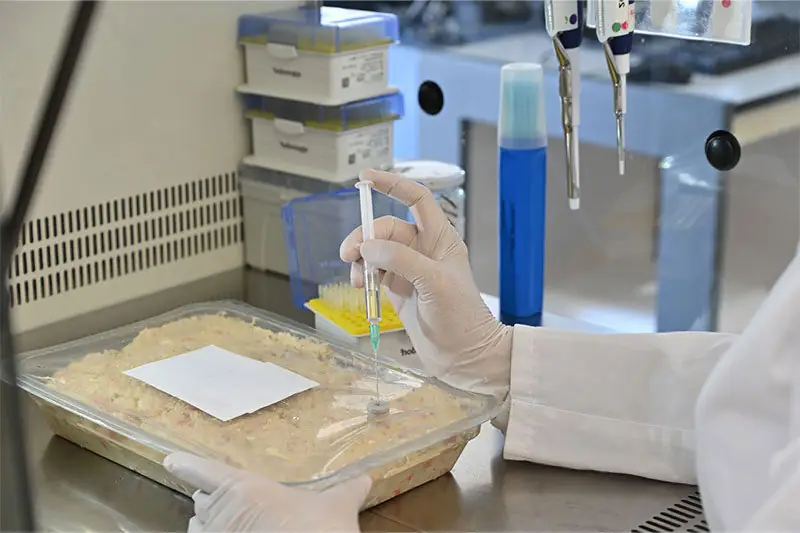Sterility Testing for Cosmetic Eye Drops
The sterility testing of cosmetic eye drops is a critical aspect of ensuring product safety and compliance with international standards. This test is particularly important in the cosmetics sector, where any contamination can lead to severe health risks for consumers.
Microbiological safety tests are designed to detect microorganisms that could cause infections or adverse reactions. In the case of eye drops, sterility testing ensures that the product does not contain viable bacteria, fungi, or other pathogenic microorganisms that could compromise the ocular surface and lead to conditions such as keratitis.
ISO 14397:2005 provides comprehensive guidelines for microbiological examination of medicinal products. This standard is widely recognized in the pharmaceutical and cosmetics industries. The testing process involves inoculating a portion of the eye drop sample onto an appropriate culture medium under controlled conditions to incubate any potential microorganisms.
The testing procedure begins with strict aseptic sampling techniques to avoid introducing contaminants into the sample. Following collection, the samples are transported to the laboratory for processing and analysis. The primary goal is to ensure that all containers meet sterility criteria as defined by relevant regulations such as those found in ISO 14397.
The test involves several steps: preparation of the sample, inoculation onto culture media, incubation at specific temperatures to allow for microbial growth, and observation for any signs of contamination. If contamination is detected, further analysis may be required to identify the type of microorganism present.
For cosmetic products like eye drops, sterility testing is not only a compliance requirement but also an essential quality assurance step. It helps manufacturers maintain consistent product purity and reliability, which are crucial for consumer trust in cosmetics brands.
Why It Matters
The importance of sterility testing cannot be overstated. Contaminants in cosmetic products can lead to severe adverse reactions, including infections, allergic responses, and even more serious conditions such as endophthalmitis if the product is used around the eye. These risks underscore the necessity for rigorous sterility testing.
Regulatory compliance is another key reason why this test is critical. Regulatory bodies like the FDA (Food and Drug Administration) in the United States, EMA (European Medicines Agency), and Health Canada require that all cosmetic products meet strict standards to ensure safety and efficacy.
The process of sterility testing also provides valuable insights into the manufacturing process. By identifying potential sources of contamination early on, manufacturers can implement corrective actions to prevent similar issues in future batches.
Benefits
Ensures product safety and compliance with international standards such as ISO 14397:2005.
Prevents contamination that could lead to severe health risks for consumers, particularly around the eye area.
Meets regulatory requirements set by various national and international agencies.
Improves brand reputation through consistent product purity and reliability.
Aids in identifying potential sources of contamination early on, allowing for corrective actions to be implemented promptly.
Safeguards against product recalls or withdrawals which can severely impact a company's reputation and financial health.
Customer Impact and Satisfaction
The implementation of sterility testing contributes significantly to customer satisfaction by ensuring that the products they use are safe and reliable. Knowing that their cosmetic products, especially those used around sensitive areas like the eye, meet stringent standards can enhance consumer confidence in a brand.
When customers trust the safety of the products they purchase, it fosters loyalty and repeat business. This is particularly important for brands that specialize in high-quality personal care items where customer satisfaction translates directly into market success.
In addition to enhancing brand reputation, sterility testing also supports the ethical responsibility of companies towards their consumers. By ensuring that their products are free from harmful contaminants, manufacturers demonstrate a commitment to public health and well-being.





